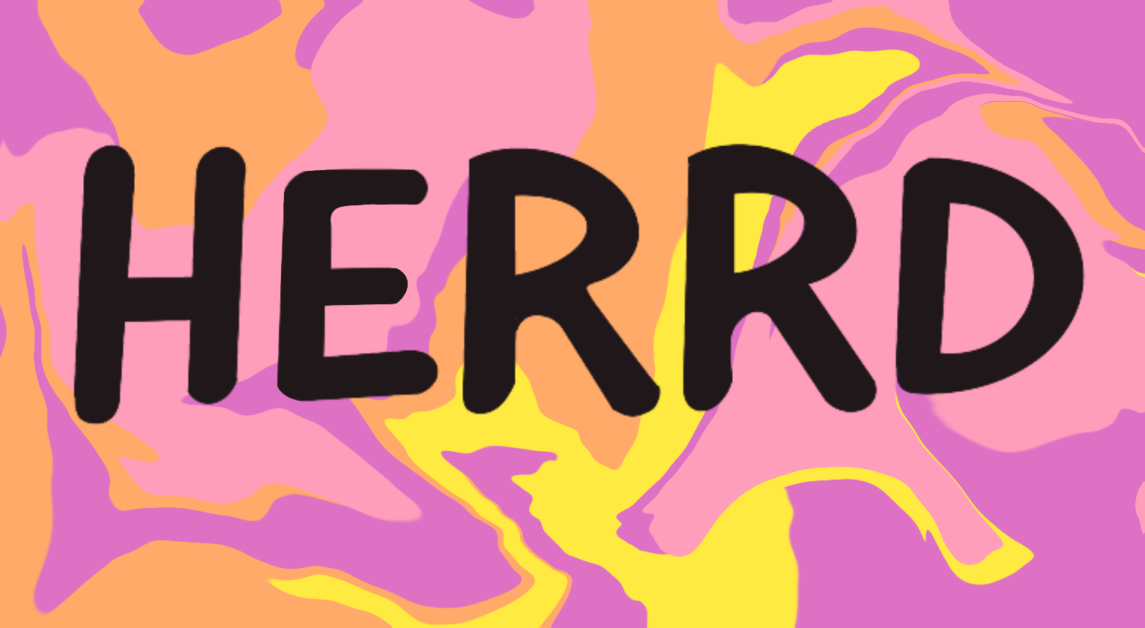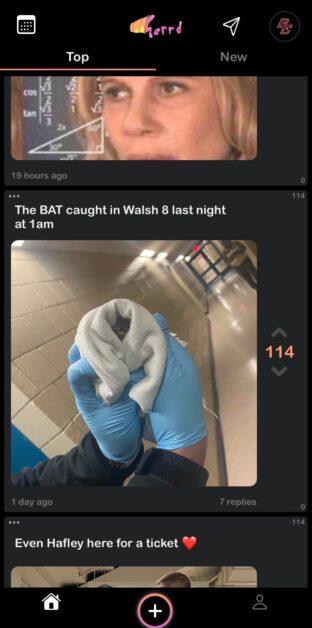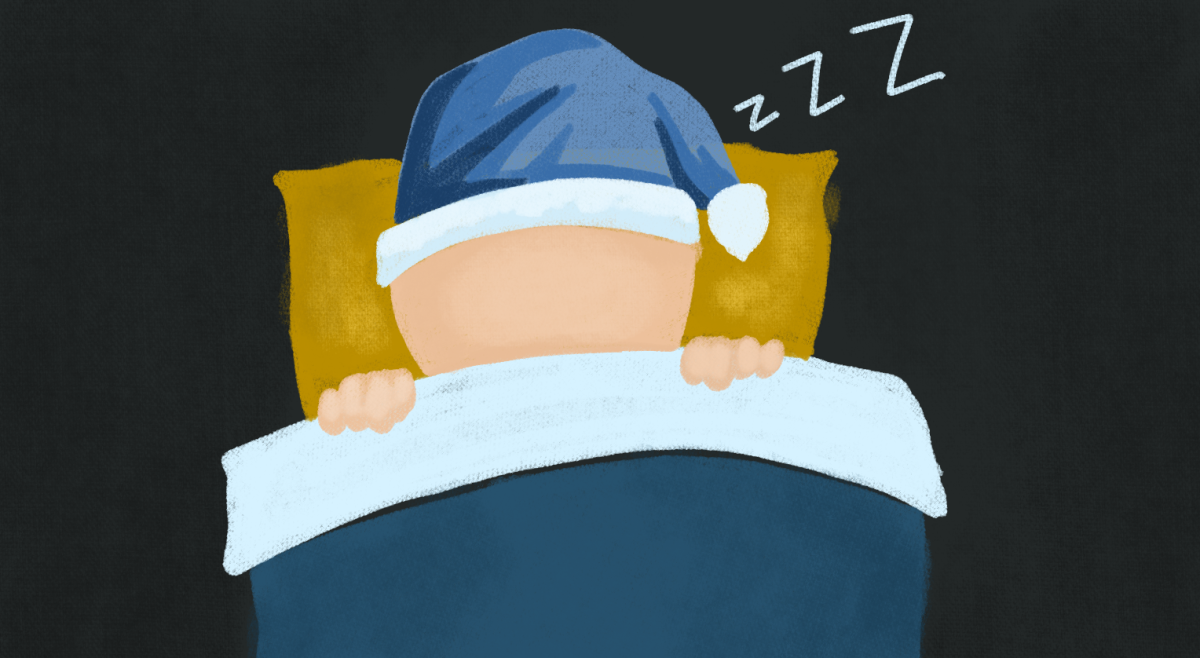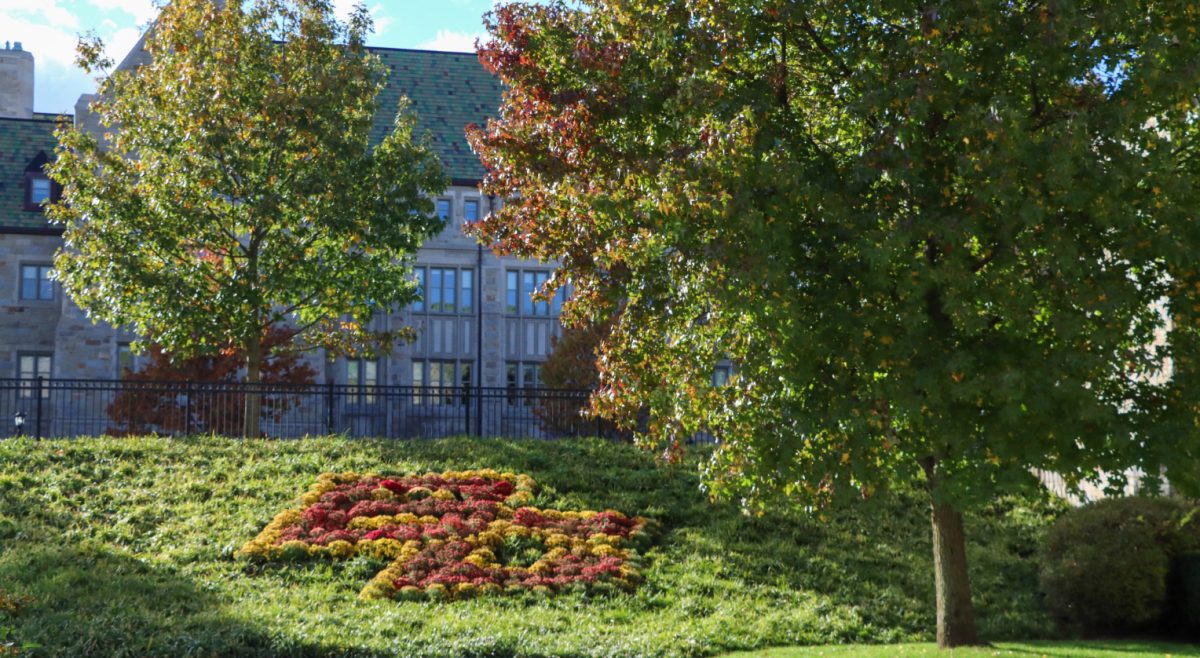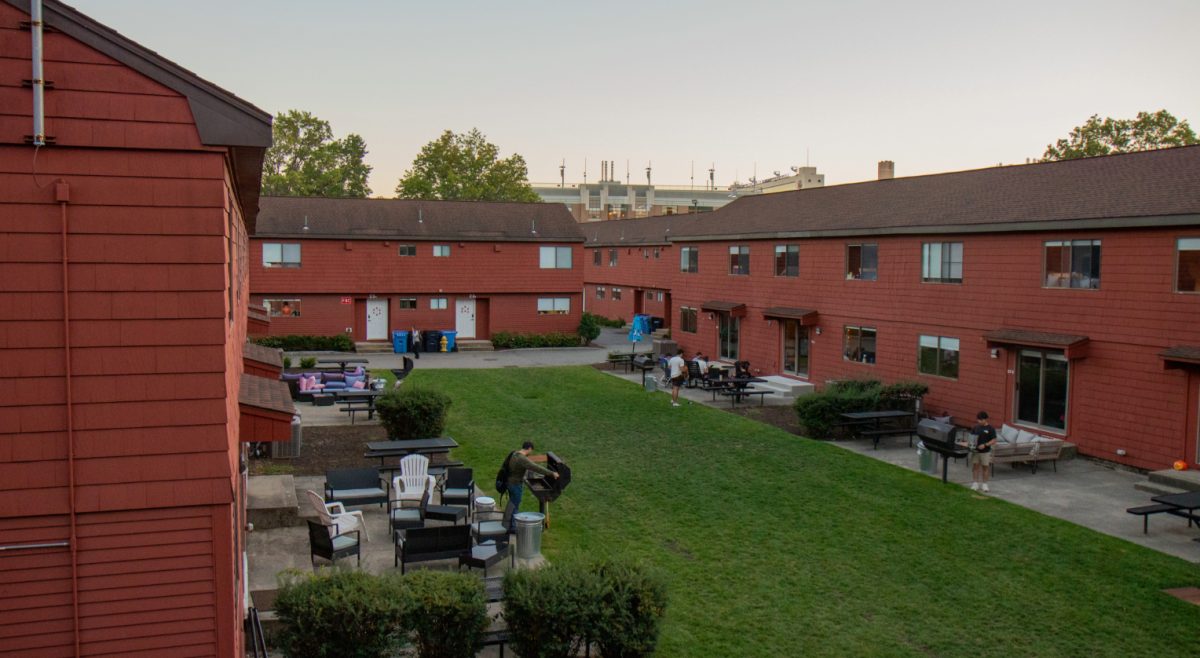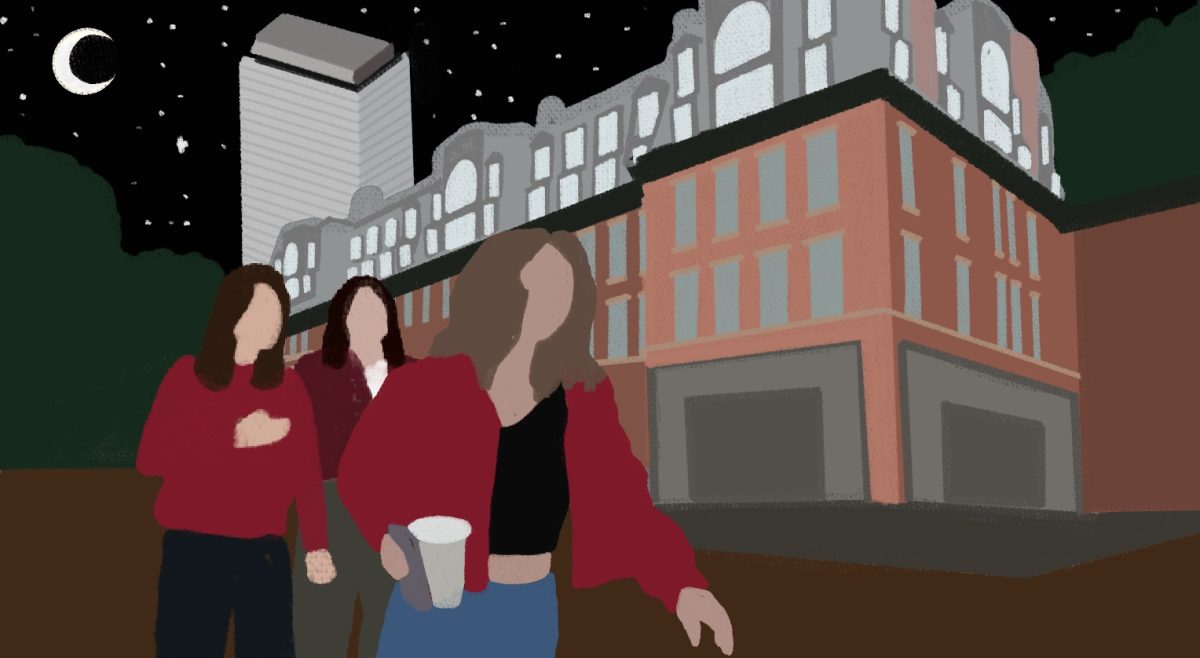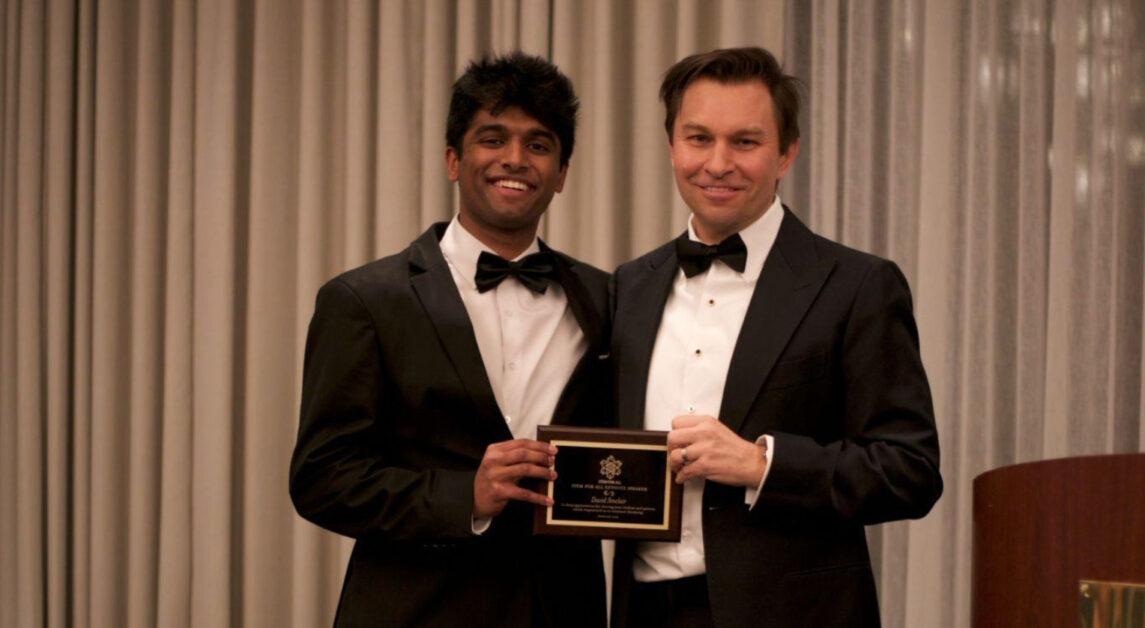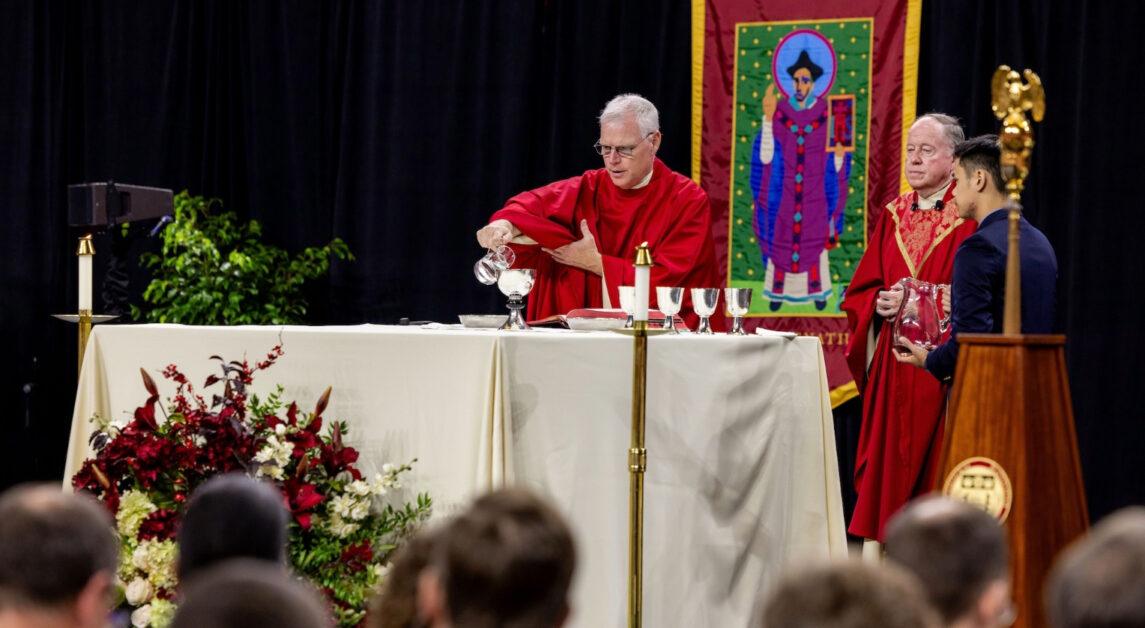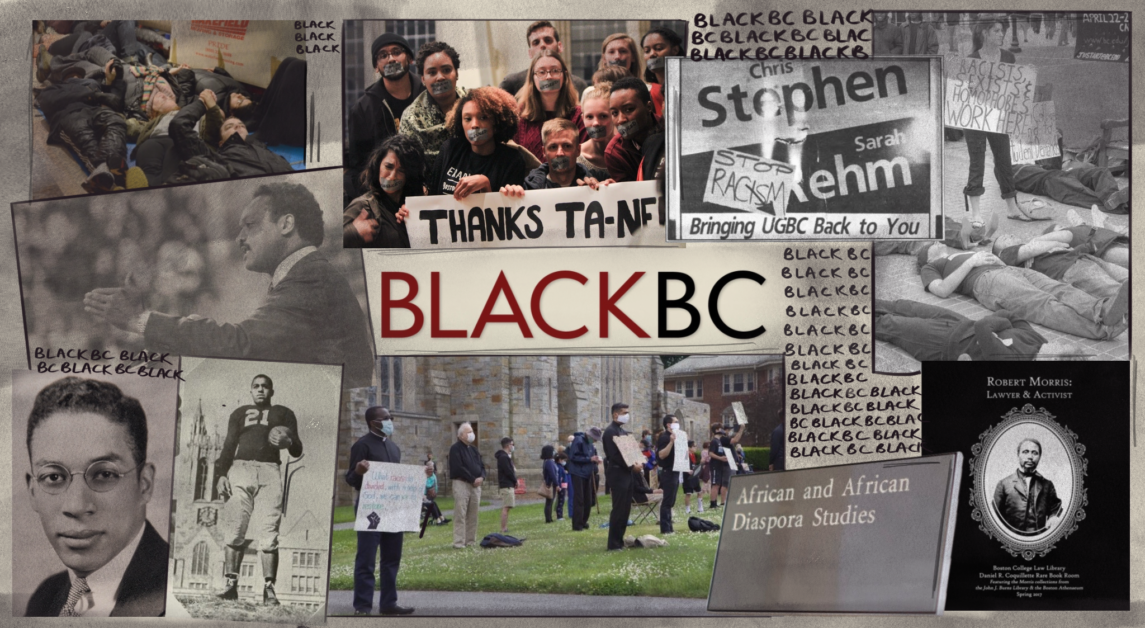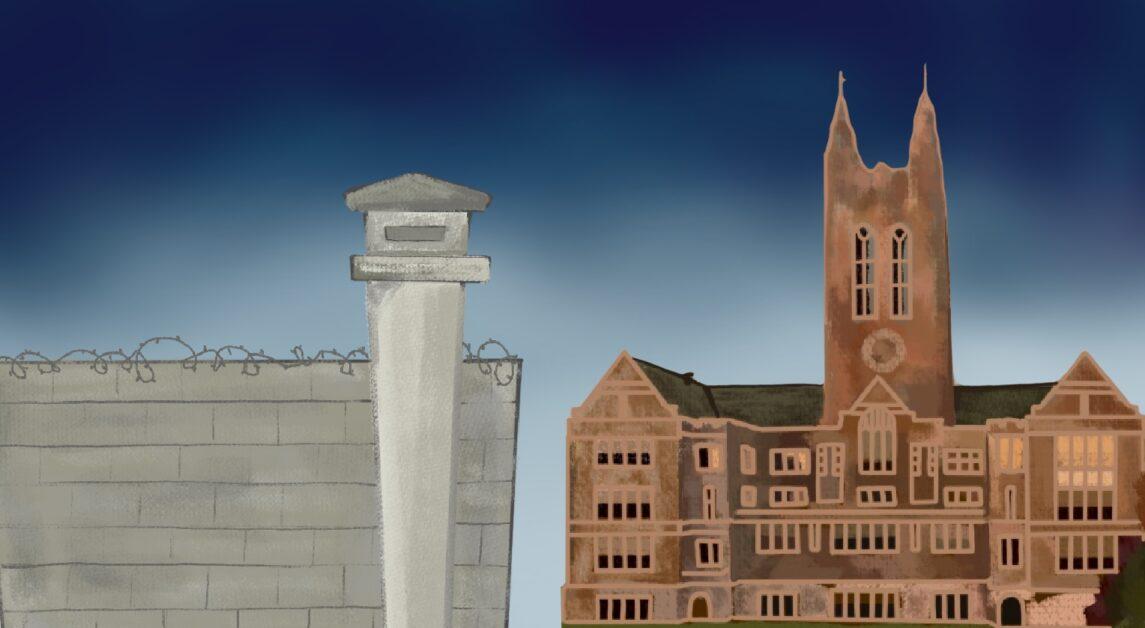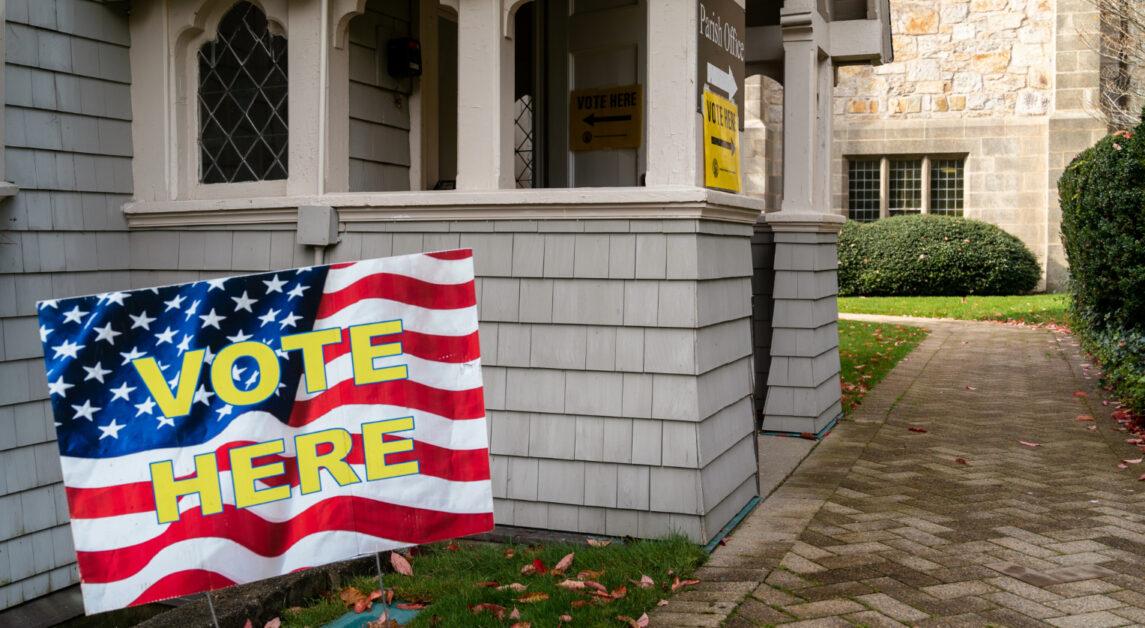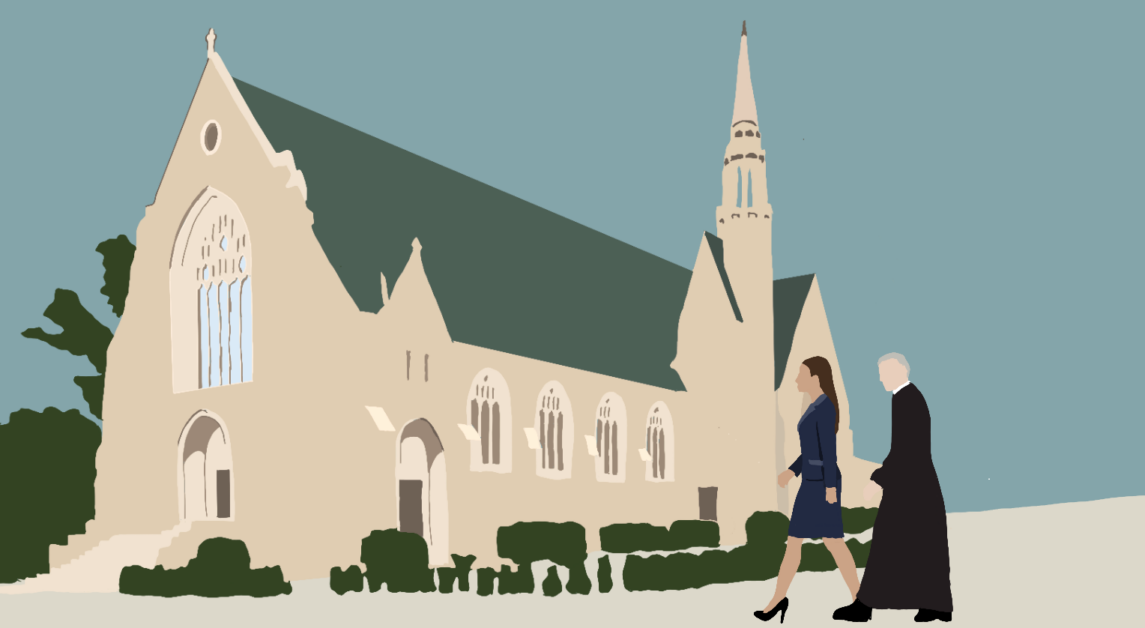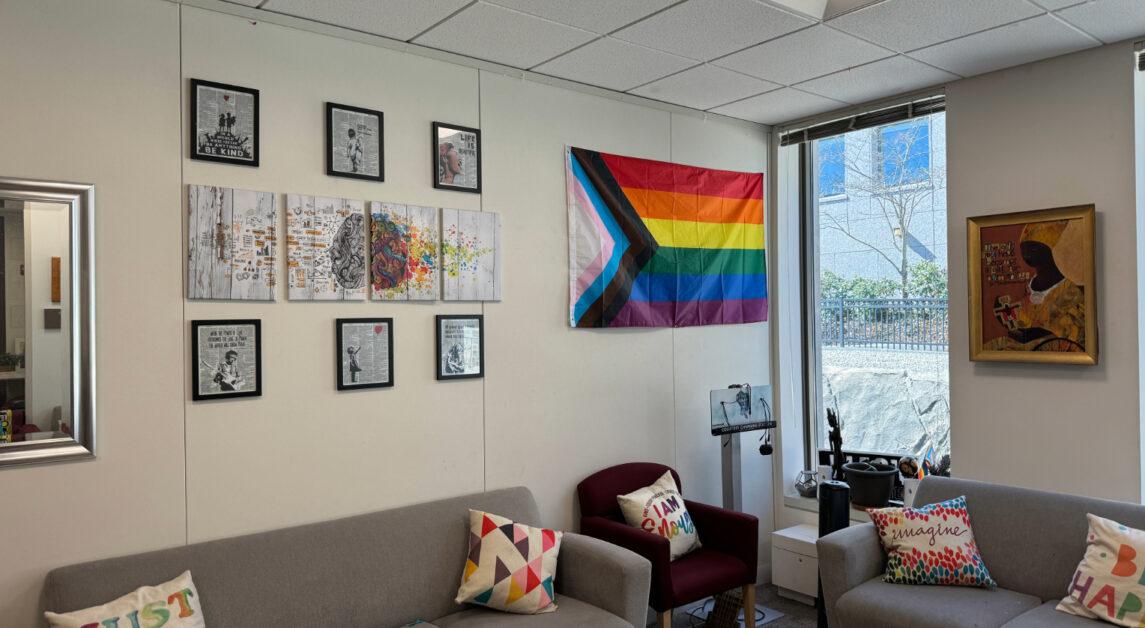Tall Girl Worshiper. Corn Girl. Club Kevork. Phrases such as these frequent Boston College students’ daily vocabularies. For many other universities, on-campus vernacular originates from popular social media sites such as Reddit or Yik Yak, but something sets BC apart—Herrd.
Isaiah Mathieu, co-founder of Herrd and BC ’20, said the initial inspiration for the app came from a study abroad trip to Madrid. Mathieu said he and Carter Beaulieu, co-founder of Herrd and also BC ’20, met while abroad during the summer after their freshman year.
When deciding where to go out in Madrid, Mathieu said promoters advertised businesses in a way he and Beaulieu found annoying, so the two returned to BC with an idea to create a platform for students to see where their friends were planning to go out.
“Carter and I left Madrid and came back to the campus with an idea to start … an anonymous social media app that allowed people to see who was going where or how many people were going to a given event,” he said.
Mathieu and Beaulieu built the first version of Herrd during the summer of 2019 as they were going into their senior year at BC.
“When we first created Herrd, the idea was nothing like what it is today,” Beaulieu said. “It was basically [for people] to be able to tell each other where we were going on a given night without having to send mass messages to people and ask where people are going. You would basically just select the location you’re going to and you see everybody was going there and that was the main idea.”
During their senior year, Beaulieu said about 80 students used the initial form of the app.
After BC sent students home at the onset of the COVID-19 pandemic in March of 2020, Mathieu and Beaulieu had to shift their mindset. Without students going out, they needed to change its objective to keep the app alive.
“We changed to the model that it is now, where instead of [seeing] where people are going, you can basically express yourself and provide content anonymously within your community in similar ways that we’ve seen before on other platforms but in a better and, in our opinion, a … safer way,” Beaulieu said.
After months of brainstorming and remodeling, the two relaunched Herrd in the fall of 2020, releasing the first version of today’s model to the BC community.
“What it is today [is] an anonymous platform for people to share content within a community that … even though you don’t know who’s posting what, you’re within the same community, so it builds a real good connection,” Beaulieu said. “It’s brought a lot of community together, especially with current events going on or memes that people share or stuff that pops up every single day.”
Beaulieu said he constructed the software with knowledge he gained from a mobile app development class he took with professor John Gallaugher while at BC, explaining how the class gave him the rudimentary information necessary to create the foundations of the app. Though he occasionally asked for help from others, Beaulieu said he mainly developed the app by himself.
Since the second version of the app launched after Mathieu and Beaulieu had graduated from BC, Mathieu said they needed to leverage the connections they still had on campus to spread the word. From texting several students in the Class of 2021 to reaching out to on-campus organizations on various social media platforms, the pair promoted the second launch.
“What we did was follow major clubs or programs on campus and basically said, ‘Hey, we have this anonymous social media app. If you could just post a story of us just explaining to your followers what this is and why it would be beneficial to them, [and] in exchange we could do something on our end for you in the future,’” Mathieu said.
Although these methods worked to an extent in gaining traction on the app, Mathieu said the 2021 UGBC election was the main accelerator of the app’s growth at the beginning of the 2021 spring semester. After seeing hundreds of posts about the election, Mathieu said he thought one user was spamming the app.
“My initial thought was, ‘Oh, somebody is trying to screw around with the app,’” Mathieu said. “But then Carter [Beaulieu] had checked the database and we were just receiving new users by the minute, and that was really when everything just took off.”
After growing from approximately 70 users in the 2020 fall semester to more than 6,000 this spring, according to Mathieu, Herrd now serves as an anonymous forum for BC students to post whatever is on their mind, from on-campus information to memes to party locations.
As Herrd has become more popular on the Heights, some students have become “Herrd famous,” as they are frequently posted about on the app.
Ben Donohue, CSOM ’24, and his roommates went viral on Herrd in late February for a beach-themed party they hosted on the eighth floor of Walsh Hall.
Donohue said he and his roommates would occasionally throw parties in their eight-man, and one of his roommates came up with the idea of a beach theme. At first, Donohue said they purchased fake blow up palm trees, beach balls, and wall decorations, but the weekend before the party, they decided to take the theme even further.
“The weekend before, my roommate Blake was like, ‘You know, we should get sand for it,’” Donohue said. “And I thought it was a joke.”
Donohue said when he returned to his dorm the Wednesday before the party, he saw his roommates had bought 15 bags of sand from The Home Depot.
“They had gone to Home Depot, and [there] were just 15 bags of sand—50 pounds of sand—sitting in our room, [and] I was like, ‘I guess we’re doing this,’” Donohue said. “That’s kind of how it came about.”
The Sunday morning after the Saturday party, Donohue said he saw posts on Herrd about their party and found them funny. In some posts, people mentioned how they tracked sand to their rooms and throughout Walsh, Donohue said.
“Like I saw … a bunch of people like making jokes … about it,” Donohue said. “Me and my roommates were all looking at it and laughing, and we thought it was funny.”
Katherine Bauer, MCAS ’22, said she also finds humor in being posted about on Herrd. She has been featured on the app several times for frequently wearing bright Lilly Pulitzer outfits. Users refer to her as “Lilly Pulitzer Girl” and post pictures of her vibrant outfits. Bauer said she sees how someone could be upset by being discussed on Herrd, but she and her friends love to joke about her Herrd fame.
“Because I’ve been wearing it for so long, it doesn’t look as vibrant as it is,” Bauer said. “It just feels like normal clothes to me. So, it doesn’t seem like in my head it would be something that would stand out, but then I came through Herrd to know that it does.”
Bauer said she thinks Herrd has become less prominent on campus than it was when it was first released.
“I would say almost everybody I knew was super active on it for a while, but now it’s definitely phased out,” Bauer said.
Robert Rasor, MCAS ’25, a cashier at the Rat, became Herrd famous for wishing students a “rat-tastic day.” He said he came up with the phrase to try to make his friend laugh during a difficult week of midterms.
“The first post about it was … the first day I said it I think,” Rasor said. “After we got back from break, people started talking about it a lot more on Herrd.”
As he continued to wish students a “rat-tastic day,” Rasor’s presence on Herrd continued to gain traction.
“When someone first sent it to me, it had like two upvotes, and I was like, ‘Oh, that’s funny,’” he said. “And then, by the end of the day, I was like the top post of the day.”
Kevork Atinizian, CSOM ’22, said he was first introduced to Herrd early in his junior year while at a friend’s off-campus house when he saw negative posts about himself.
“I forget whether or not I had the app downloaded or someone else had the app downloaded, but people were saying some pretty negative things about me,” Atinizian said. “And that’s when I first found out about the Herrd app.”
Posts about Atinizian continued to circulate on Herrd after the impeachment of former UGBC President Christian Guma, BC ’21—who Atinizian served as vice president under—and as he ran for UGBC president in February of 2021. The posts included pictures of Atinizian from his childhood and high school, frequently becoming top posts. Atinizian said that this not only made him feel uncomfortable and unsafe, but it hurt as well, as students posted false claims about his character. The combination of becoming a viral figure on Herrd and the UGBC campaign took a toll on his mental health, Atinizian said.
“It was early February, before the campaign ended and then after the campaign ended, I was [at] my low point,” Atinizian said. “Yes, I think people would have still posted things about me on the app, yet I don’t think it would have gone viral if other things didn’t happen, too, coincidently.”
For Atinizian, there wasn’t a particular moment when he realized he was Herrd famous, but it was rather a combination of things, he said.
“I think I started to realize it as I’m like, you know, going to a party or going somewhere else and then someone approaches you and it’s like, ‘Oh my God, you’re Kevork,’” Atinizian said. “I think that that’s when it would hit you that like, you know, you’re going viral.”
Atinizian described his Herrd fame as a rollercoaster because of the toll it took on him mentally. The posts were initially negative during the impeachment trial and Atinizian’s own UGBC campaign, but then became more positive after the opening of BC After Dark—often dubbed Club Kevork for Atinizian’s involvement in launching the Hillside restaurant.
“You know, it’s funny whenever you’re in an ice cream truck with Jeff Haffley and [Earl] Grant handing out ice cream to the entire student body and people are posting and saying things, and then you’re like … it’s funny and it’s in good fun,” Atinizian said.
Although Atinizian is still unsure of his overall thoughts on the app, as it has the ability to do both harm and good, he said he does believe that it ultimately validated the good work he did as UGBC vice president.
“Herrd also weirdly solidified the good work that I did as [UGBC] vice president,” Atinizian said. “And this is what people forget, too. I was the only vice president of UGBC that was strictly entirely under the duration of COVID restrictions, and that also took a toll on my mental health with everything else, you know, because that’s not the year that you want.”
Because of Herrd’s growing impact on BC’s campus, Mathieu said he and Beaulieu have developed a relationship with both the BC administration and the BC Police Department (BCPD). The relationship between the founders and the University began after a student posted a negative message on the platform, and Mathieu said they have since developed a strong relationship with open communication.
“[We] definitely [have] an open line of communication, basically sharing our thoughts of how we would want to keep the community safe—the BC community as well as the Herrd community safe—and, as well, being listeners to any feedback that they would have for us to further improve the app,” he said.
The Herrd team especially works with the University when a student posts something harmful to the BC community, such as hate speech or personal threats.
“Those situations are when we engage with [the University] and BCPD and find ways to strengthen the platform overall to prevent issues like this or that may occur in the future,” Beaulieu said. “It’s not a formal partnership, but they’re on our side. They know how much the kids love it. And when things come up that we need to address, we work with them right away so that we can take the right action.”
Currently, Beaulieu and Mathieu constantly monitor the app along with the help of their student ambassadors by sifting through posts that users report, Mathieu said. The two also use various measures to determine if posts’ content is inappropriate and should be removed from the platform, Mathieu said, which is also outlined in the app’s terms and conditions.
“When we see a post that’s reported, we can either straight up delete it [or] we might delete it and then send a warning email to that user saying if they post anything like this again, [it] will permanently ban their account,” Beaulieu said. “Or if it’s worse than that, we’ll obviously delete the post and then report it either to BCPD or BC admin if it’s something super pressing that requires that attention.”
To mitigate the chances of future harmful incidents, Beaulieu said he and Mathieu are working with the University to improve the app’s features.
Despite the harmful posts, many students use Herrd for more lighthearted purposes.
Henry Valentine, MCAS ’22, is an active Herrd user who first downloaded the app shortly after its second launch. He said he usually posts five to 10 times a day and is on the top of Herrd once a week on average.
“I’ve definitely had stretches where I’m really into it and then stretches where, maybe when I’m at home over break or something, where I’m not as into it,” Valentine said.
Valentine said his posts are usually humorous or highlight interesting things that he sees around campus, and the anonymity of the app allows people to be more open with what they say, which helps foster connections.
“Obviously you don’t know who people are, but that really allows people to be authentic and kind of bond together over a lot of things,” Valentine said.
On the other hand, Joey Watroba, MCAS ’24, does not have Herrd downloaded.
“Some of my friends use it,” he said. “I wouldn’t say all my friends use it, but it can be a topic of discussion.”
Watroba said he deleted Herrd last semester after deciding that he wanted to spend less time on social media.
“At that time, I was just trying to not be on social media as much … and I haven’t wanted to be on it since,” Watroba said.
He said he would consider redownloading, but currently does not find the app entertaining.
“It was funny for like a week, and then I kind of got bored with it,” Watroba said. “It was just not a very engaging social media, I suppose, and there [were] a lot of trolls.”
Erica Fanning, MCAS ’24, said she first heard about Herrd and downloaded it last semester. Fanning said she does not use the app that much, but she recognizes the role it plays in connecting students on campus.
“I think that it kind of adds [to] rumor culture just by posting [and] hearing what things happen,” Fanning said. “But I also think it helps students with stress just by posting difficulties anonymously and having students agree or disagree with them—knowing they’re with them too.”
Similarly, Megan Haught, CSOM ’24, said Herrd can be both a helpful and harmful force on campus.
“You find out news about things happening on campus, but because it’s anonymous, it’s also a way to just put people down because you’re behind the screen,” Haught said. “But I would say people tend to find enjoyment out of it, so I would say that the positives outweigh the negatives.”
Many students also use Herrd as a place to ask for recommendations or ask questions, Haught said. For example, students will ask what professors are good for a particular course or for restaurant recommendations. Haught said that, in her experience, it is hard to get a quality answer when she does decided to ask Herrd for recommendations.
“I wanted to get my ears pierced, and I was [asking] if there were any places around,” Haught said. “I think I got ‘your mom’ back, so I was like, ‘This is not what I’m looking for.’”
Herrd has a number of purposes for BC’s student body, Mathieu said, including providing mindless entertainment or information. Students expressing their senses of humor is one of the app’s most prominent qualities.
“This app can be a source for [students’] entertainment if they’re looking for laughter [or] if they’re looking for information on certain things … just to see what’s going on around campus,” Mathieu said.
To potentially expand Herrd, Beaulieu and Mathieu are considering different options. Beaulieu said they are focusing on perfecting the app’s current features by listening to feedback from the BC community and through regular software updates. In the future, they hope to either expand to other universities or the app’s audience to young adults in various cities, he said.
“We’re getting close to a point where we do want to expand, and kind of our two options are going to other schools, [or] there’s another interesting route … where we have explored the idea of expanding Herrd not only to other colleges, but to like major cities that young adults might be living in after school,” Beaulieu said. “Whether you’re in Boston or New York City or other major cities, [you can] have the ability to be a part of a Herrd within that city.”
Images Courtesy of Herrd App

